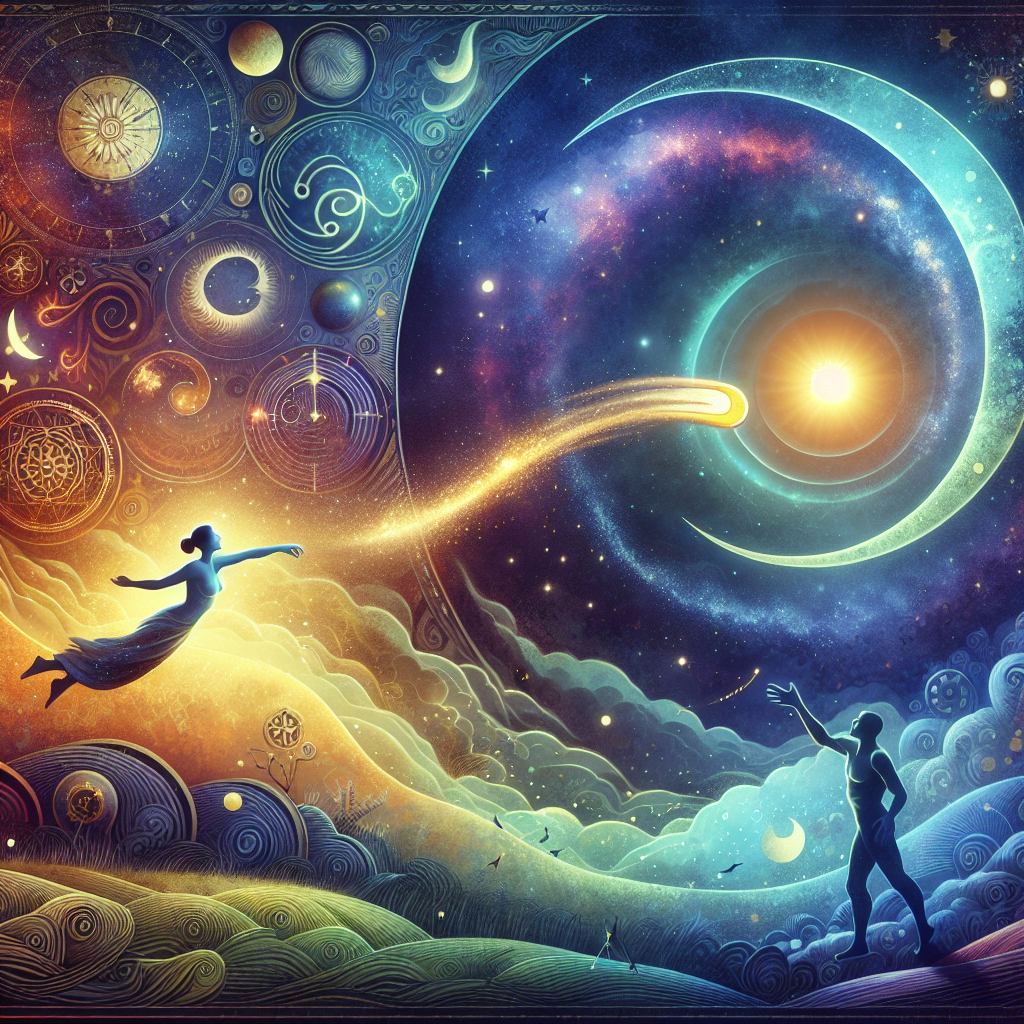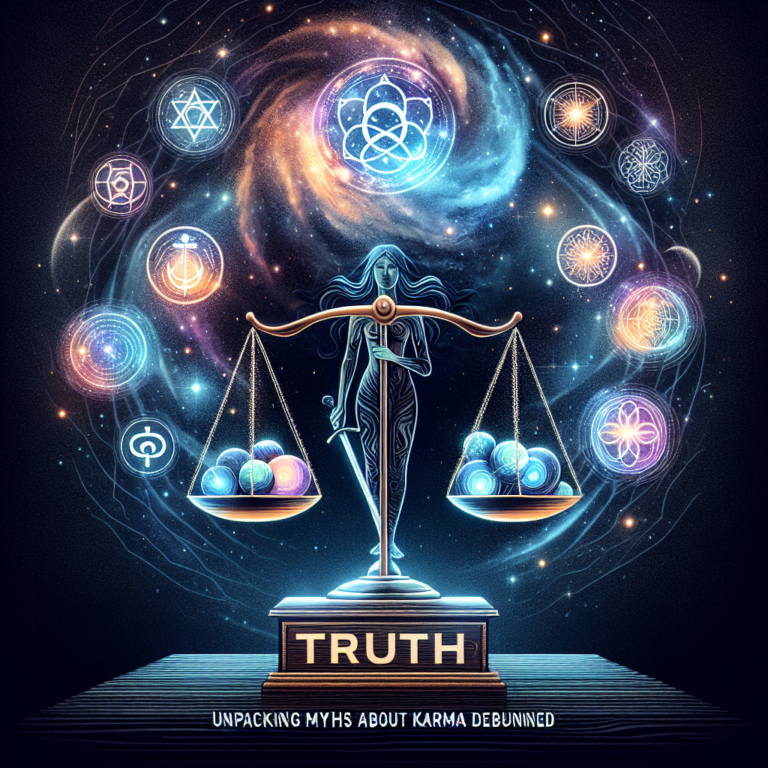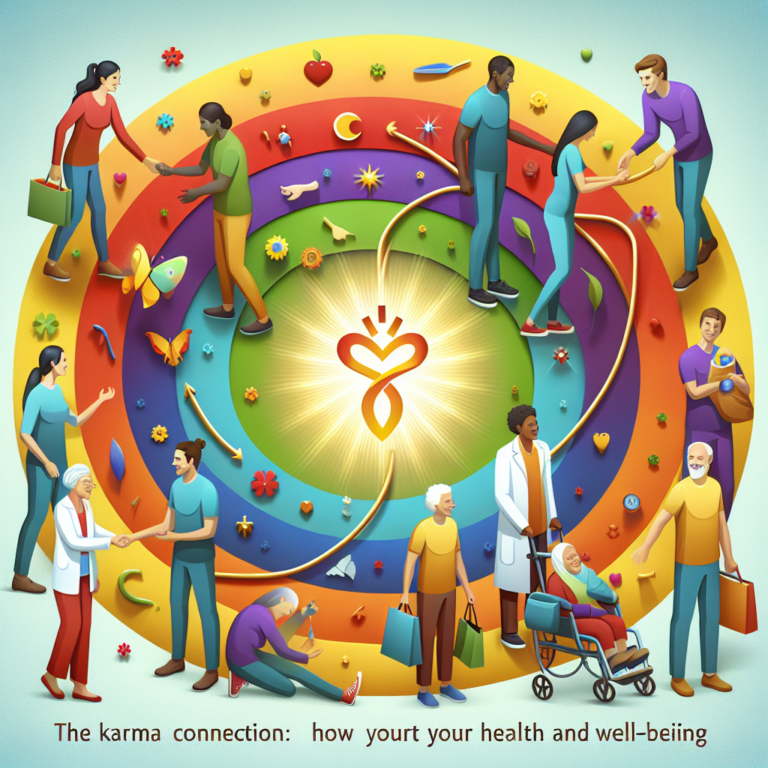Karma and destiny are concepts that have intrigued humanity for centuries. Philosophers, theologians, and everyday individuals have wrestled with the implications of these notions, often seeking to understand how our actions influence the course of our lives. Karma, a term that originates from Indian religions, refers to the law of moral causation—essentially, the principle that every action has consequences. Destiny, on the other hand, refers to the idea that certain events are predetermined or inevitable. Together, these concepts create a rich tapestry of beliefs around responsibility, free will, and the nature of existence.
Understanding Karma
Karma is derived from the Sanskrit word "karman," which means "action" or "deed." In many Eastern religions, particularly Hinduism and Buddhism, karma serves as a guiding principle. It posits that every action—good or bad—will eventually result in a corresponding outcome. This can manifest in this lifetime or the next, suggesting a cyclical nature of existence. The ethical dimension of karma emphasizes that individuals have the power to shape their destinies through their choices and actions.
This underscores a vital aspect of the human experience: the idea of moral responsibility. If our actions can affect our future circumstances, it leads us to consider the implications of our decisions. In Western philosophy, similar ideas can be found in the concept of reaping what you sow. The underlying message is clear: our actions can reverberate through time, affecting not only ourselves but also those around us.
The Cycle of Karma
Karma operates within a cycle often referred to as the "law of cause and effect." This cycle can be illustrated as follows:
- Action: Every action made by an individual sets off a chain of reactions.
- Reaction: The immediate effects of the actions may be positive or negative.
- Consequences: The cumulative effects result in life experiences, shaping one’s circumstances.
- Rebirth: Unresolved karmic debts may carry over into future lives, influencing one’s human experience in subsequent reincarnations.
This cyclical concept is essential in understanding how karma and destiny interact. While a person may experience the consequences of past actions, they are also continuously in the process of creating new karma through current thoughts, words, and deeds.
Exploring Destiny
Destiny involves the belief that certain events or outcomes are fixed and inevitable. This notion often finds its roots in religious or spiritual frameworks that suggest a divine plan or preordained fate. In many cultures, destiny can be viewed as a guideline for one’s life path, suggesting that certain experiences are meant to unfold in a particular way, regardless of individual actions.
Destiny raises questions about predetermination versus free will. If our lives are preordained, what role do our choices play? Conversely, if free will governs our actions, how does destiny manifest? This dichotomy has fueled philosophical debates for centuries, as individuals attempt to reconcile their understanding of choice with the perceived fixed events of life.
Many philosophies advocate for a combined view—suggesting that while certain major life events may be preordained, the path we take to reach these points is influenced by our actions. This means that while we may be guided by fate, we are not merely passive players in our stories; we actively shape our experiences through our everyday decisions.
The Interplay Between Karma and Destiny
The relationship between karma and destiny can be seen as a dynamic interplay where each element influences the other. The principle of karma asserts that our present actions have real, lasting effects on our future circumstances. In contrast, destiny hints at a predetermined set of experiences waiting to unfold.
The Co-creation of Life Experiences
Actions Influence Outcomes: The choices we make today can alter the path our lives take tomorrow. For instance, someone who chooses to pursue education and develop skills is likely to find better job opportunities—a direct manifestation of positive karma.
Prior Karmic Residue: Our lives are also shaped by the actions taken in past incarnations, which carry their weight into the present. People might experience challenges, rewards, or obstacles due to past actions that manifest in their current life.
Awareness and Responsibility: Emphasizing the notion of karma encourages individuals to cultivate awareness of their actions. This self-awareness can lead to more conscientious behaviors and encourage individuals to be responsible for their life choices.
- Learning and Growth: Challenges often serve as learning experiences. Life’s hardships can help individuals grow, prompting reflection and the opportunity for change. This growth can reshape one’s destiny, demonstrating how karma informs the journey.
Balancing Karma and Destiny
Understanding the connection between karma and destiny can provide deeper insights into personal challenges and triumphs. It encourages individuals to take ownership of their actions while recognizing that some aspects of life may be beyond their control. This balance between acceptance and proactive choice is crucial in navigating life’s complexities:
Acceptance: Embracing the idea of destiny can foster resilience during tough times. Recognizing that obstacles may be part of a larger divine plan allows individuals to maintain a sense of peace.
- Proactive Living: Acknowledging karma reminds individuals that every action contributes to their narrative. This empowerment can provide the motivation to enact positive change in both their lives and the lives of others.
Conclusion
Karma and destiny represent two sides of the same coin in the human experience. While karma emphasizes the importance of actions and choices through the law of cause and effect, destiny introduces the notion of predetermined experiences that guide individuals along their journey. Together, they create a fascinating tapestry of existence that encourages us to act mindfully and appreciate the interconnectedness of our lives.
By recognizing the interplay between these concepts, individuals can embrace a more holistic understanding of their life journeys, fostering both responsibility and acceptance in a world that is, at once, unpredictable and divinely orchestrated.
FAQs
1. What is karma?
Karma is the principle of cause and effect where a person’s actions, whether good or bad, influence their future. It is mainly associated with Eastern philosophies and religions.
2. How does karma work?
Karma operates on the premise that every action has a corresponding consequence. Good actions result in positive outcomes, while negative actions lead to negative consequences, affecting one’s current and future life experiences.
3. What is destiny?
Destiny refers to the belief that certain events in a person’s life are predetermined and inevitable, often seen as part of a larger divine plan.
4. Can karma change destiny?
While some aspects of destiny may be fixed, individuals can influence their life paths through their actions and choices, thereby changing their karma and altering their destinies.
5. How do karma and destiny interact?
Karma shapes the outcomes of our lives based on past actions, while destiny governs the major life events we encounter. Together, they create a dynamic interplay where each influences the other.
6. Is karma only about individual actions?
While karma often emphasizes individual actions, collective actions and societal behaviors can also create a shared karmic impact within communities and cultures.
7. Can you escape karma?
One cannot completely escape karma, as the effects of actions will manifest in some way. However, one can work to change the quality of their karma through positive actions and attitudes.
8. Do different cultures view karma and destiny differently?
Yes, different cultures and religions may have unique interpretations of karma and destiny, which can shape how individuals understand their lives and experiences.
It looks like you entered a single word, “Prompt.” Can you please provide more context or specify what you would like assistance with? Whether you’re interested in writing prompts, questions, or something else, I’m here to help!, #Karma #Destiny #Interplay #Actions #Fate, #Karma #Destiny #Interplay #Actions #Fate, 1736669336, karma-and-destiny-the-interplay-of-actions-and-fate





